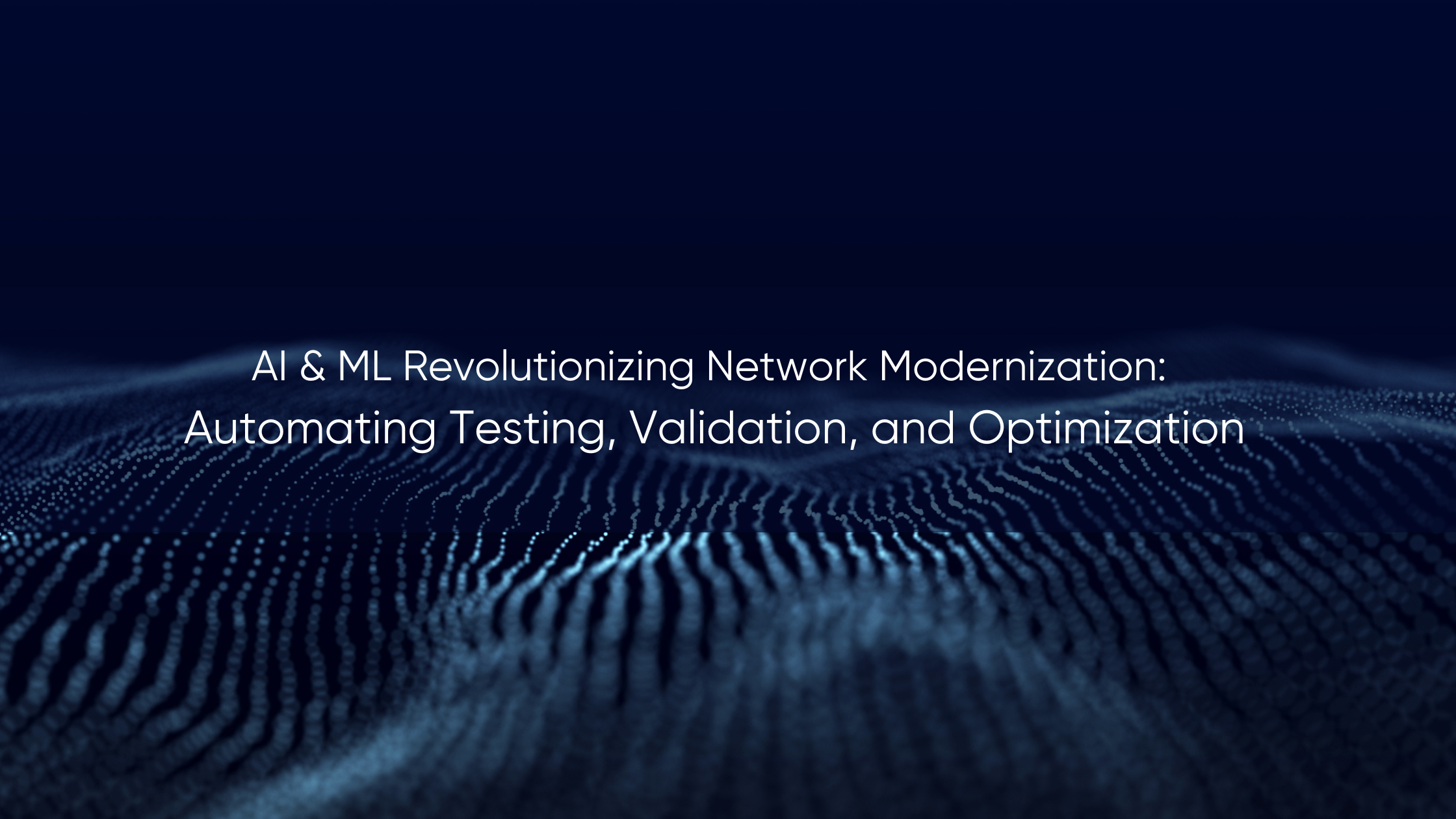This article was written by our CEO, Bill Kleyman. You can check out the original article published on Data Center Frontier .
As digital transformation accelerates, the pressure on both physical and digital networks has never been greater. To keep up with the demands of 5G, cloud, and edge computing, modernizing networks has become essential. But it’s not just about hardware upgrades—artificial intelligence (AI) and machine learning (ML) are playing a pivotal role in transforming how networks are tested, validated, and optimized, ensuring they remain agile, resilient, and future-proof.
The Challenges of Modernization
Modernizing physical and digital networks isn’t just a matter of updating infrastructure. Networks today are more complex, dealing with massive data loads, distributed architectures, and a broad range of applications, from IoT devices to AI-powered services. This complexity increases the need for real-time visibility, more accurate testing, and ongoing validation to ensure optimal performance.
Traditional methods of network testing and optimization can no longer keep pace with these evolving demands. Manual processes, while effective in the past, now struggle to scale with the rapid deployment of new technologies. This is where AI and ML step in, transforming the landscape of network modernization.
The Role of AI & ML in Network Testing
AI and ML are revolutionizing the way networks are tested and maintained. By leveraging these technologies, networks can be tested more efficiently, and at scale, with minimal human intervention. AI-driven tools enable continuous testing, detecting anomalies and performance issues in real time, long before they escalate into outages or service disruptions.
ML algorithms also enhance predictive maintenance by identifying patterns and trends in network behavior. This allows operators to proactively address potential issues before they impact the user experience. For modern networks, this shift from reactive to proactive management is crucial, enabling better uptime, reliability, and overall performance.
Automating Validation and Optimization
Network validation, traditionally a time-consuming and manual process, can now be automated through AI and ML. Automation accelerates the validation process while reducing the risk of human error, ensuring that networks meet performance and security standards.
Optimization is another key area where AI and ML are making a significant impact. By continuously analyzing network performance, these technologies provide actionable insights that help operators fine-tune their networks for efficiency and cost-effectiveness. Whether it’s dynamically allocating bandwidth or optimizing routing paths, AI-powered optimization ensures networks can adapt to changing demands with minimal downtime.
A Smarter Approach to Modernization
The future of network modernization will depend heavily on how organizations leverage AI and ML technologies. These innovations allow for greater automation, smarter testing, and real-time optimization, making networks more resilient and scalable.
At Apolo Cloud, we’re committed to helping organizations modernize their networks with the power of AI. Our AI-driven solutions enable seamless integration with existing infrastructures, ensuring that testing, validation, and optimization processes are fully automated and future-ready. To learn more about how Apolo can support your network modernization efforts, visit our website
.svg)


